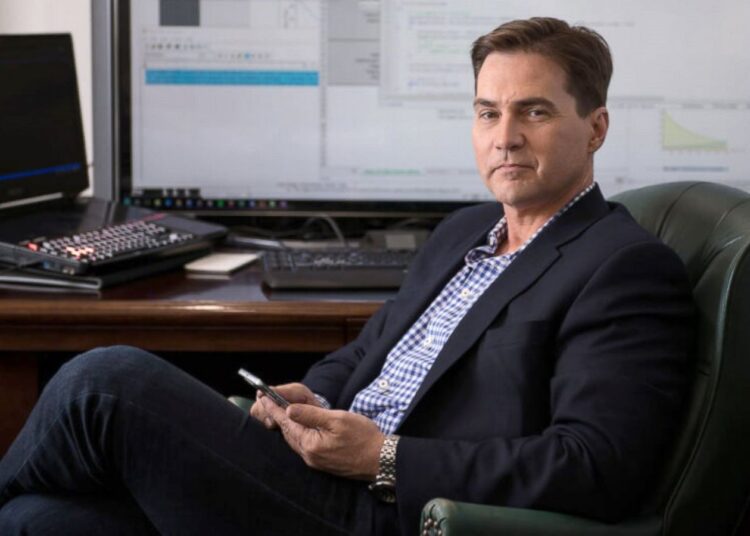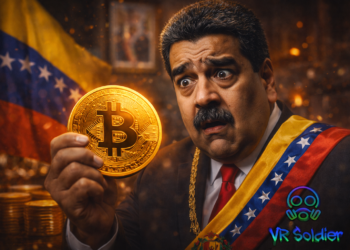A computer scientist claims to be the creator of Bitcoin “Satoshi Nakamoto”. A London judge aims to uncover the truth. One of the lasting enigmas of the cryptocurrency industry took center stage Tuesday in a London court where a trial could finally resolve the debate over the identity of Bitcoin’s founder.
Craig Wright: ‘I am the creator of Bitcoin, Satoshi Nakamoto!’
Australian computer scientist Craig Wright stepped into the witness box at the High Court and testified he was the man behind “Satoshi Nakamoto,” the fictional name that has concealed the identity of the originator of Bitcoin. Wright has long claimed that he is Nakamoto. A nonprofit consortium of technology and crypto companies is seeking to demonstrate he’s not. The trial commenced on Monday and is anticipated to endure a month, before a judge issues a ruling at a later date.

“Wright’s claims to be Satoshi is a fabrication, established on an intricate false storyline backed by forgery of documents on a massive scale,” attorney Jonathan Hough said on behalf of the Crypto Open Patent Alliance (COPA) at the outset of trial. “As his fraudulent documents and discrepancies have been uncovered, he has turned to further forgery and increasingly implausible excuses.”
Intellectual Property Rights at Stake
Wright has exploited his claims as Bitcoin’s originator to initiate legal proceedings to dissuade developers from further advancing the open-source technology, the alliance alleges in their lawsuit. The verdict will impact three pending lawsuits that Wright has initiated based on his assertion to possess the intellectual property rights to Bitcoin.
“Wright has made threats to bankrupt developers, sent notices of his intention to sue, and has, indeed, embarked on aggressive litigation against these volunteers, all based on the unfounded assertion that he is the founder of Bitcoin,” the alliance stated Monday in a release. The murky origins of Bitcoin trace back to the pinnacle of the financial crisis in 2008. A paper penned by an individual or group using the Nakamoto pseudonym detailed how digital currency could be sent globally anonymously, without banks or national currencies. However, Nakamoto just disappeared three years later.
Speculation on the true identity circulated for years and the names of various candidates had surfaced when Wright initially emerged to assert the identity in 2016 only to promptly retreat to the shadows, saying he lacked the “courage” to provide more evidence.
Evidence Provided To Court
Wright contended in court Tuesday that he formulated the technology and the mysterious identity behind it, which he said was inspired by his admiration for Japanese culture. He stated the name was a fusion of the surname of philosopher Tominaga Nakamoto and Satoshi David, a character in a book about American tycoon J.P. Morgan, and a Pokemon character. He also mentioned that he didn’t desire the creator to be anonymous, so he employed an alias to safeguard his privacy. “This allowed me to concentrate on my work and ensured that the limelight remained on the innovation and potential of Bitcoin rather than the individual behind it,” he stated.
Defense lawyer Anthony Grabiner remarked the alliance hadn’t presented affirmative evidence that Wright wasn’t Satoshi and solely aimed to undermine the credibility of documents that he had relied on to prove that he was the originator.
It is noteworthy that no one else has credibly laid claim to the mantle of Satoshi, notwithstanding the high-profile nature of Dr. Wright’s assertion to be Satoshi,” Grabiner remarked. “If Dr. Wright were not Satoshi, the real Satoshi would have been expected to come forward to counter the assertion.”
Conflicts Among Bitcoin Experts
While Wright succeeded in persuading several influential Bitcoin enthusiasts that he was genuine by demonstrating the use of Nakamoto’s secret Bitcoin keys, other crypto experts contended that they refuted his claims. Despite widespread skepticism in the cryptocurrency community, he has prevailed in legal disputes. In 2021, he emerged victorious in a civil case in Florida against the family of a deceased business partner that contended it was entitled to half the 1.1 million Bitcoin, valued at approximately $47.5 billion, and today, that could only be owned by a person or entity involved with the digital currency from its inception — such as the creator.
Attorney and Crypto Community Challenge Wright
Because all Bitcoin transactions are public, members of the Bitcoin community have routinely called for Wright to transfer just a fraction of the coins to substantiate ownership. Wright appears to have never done so, despite pledging to prove that he’s the owner of the fortune. In the London trial, Attorney Hough repeatedly clashed with Wright over the veracity of documents that he claimed supported his assertions












